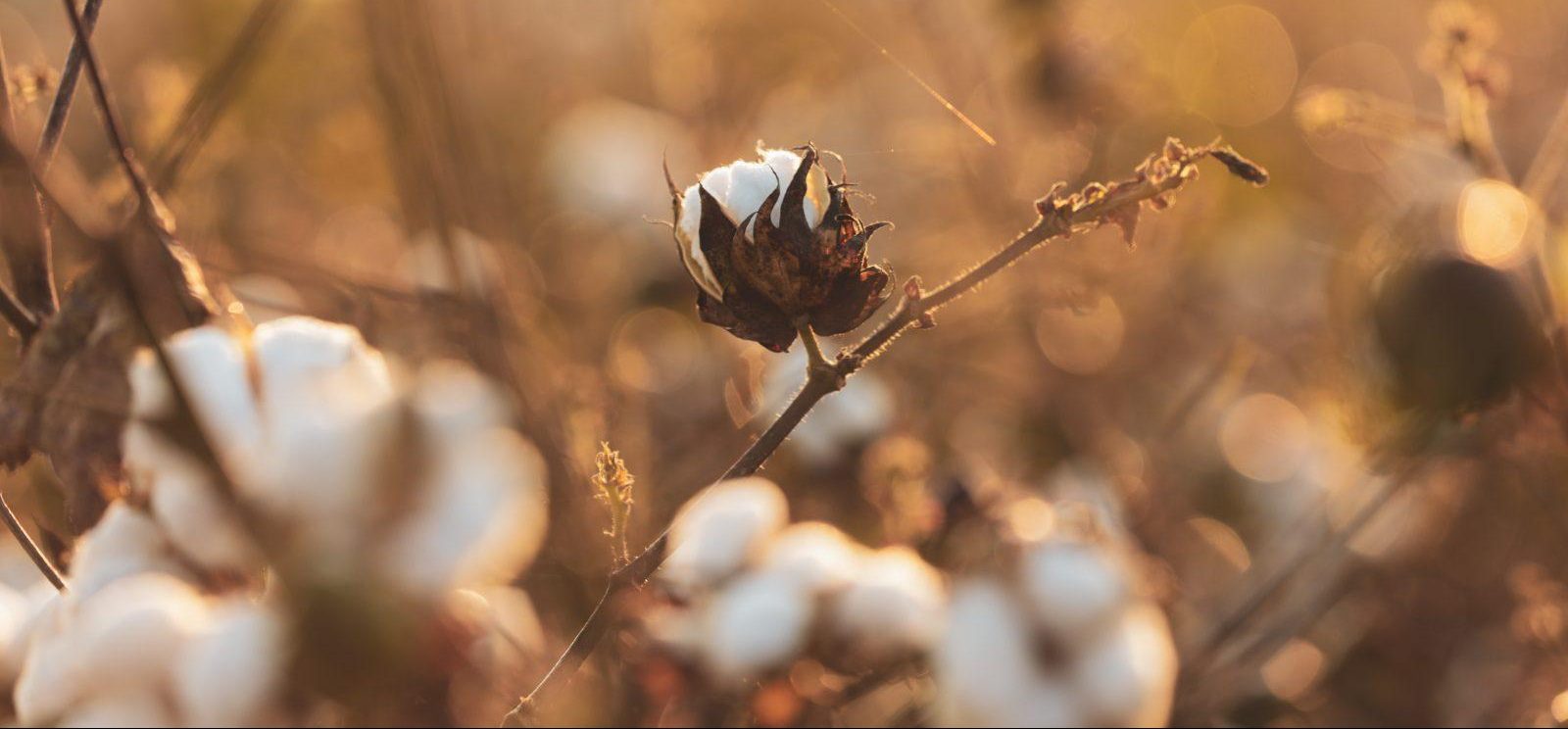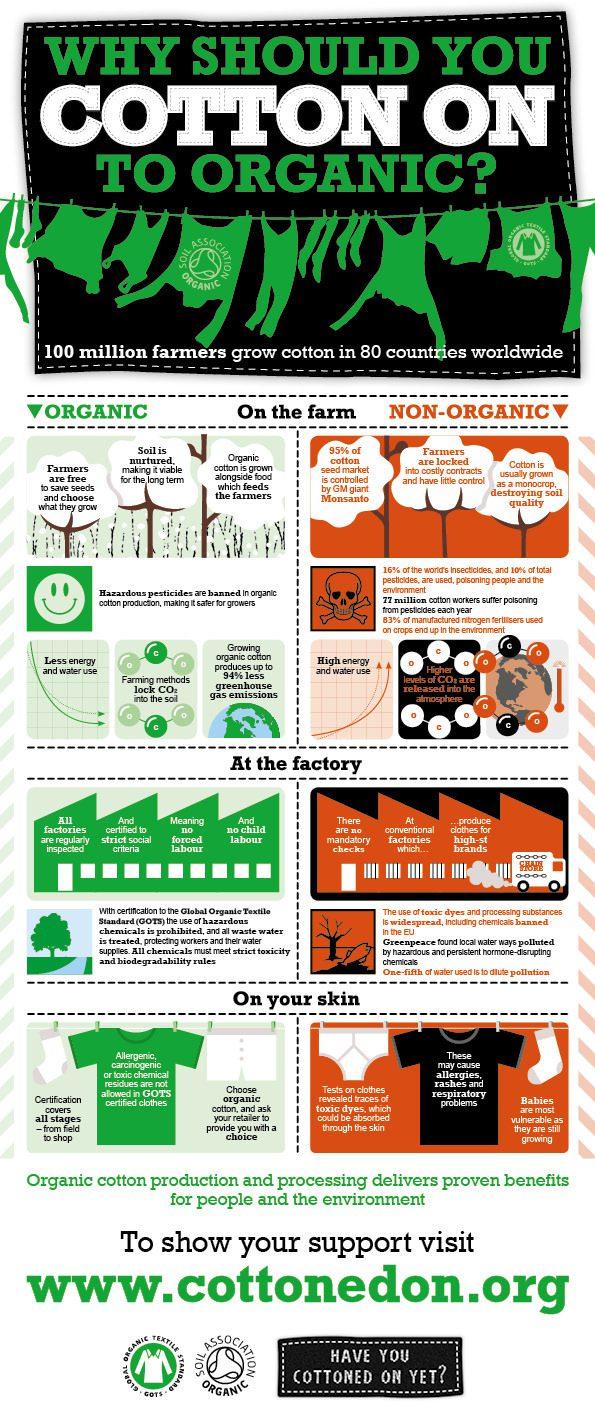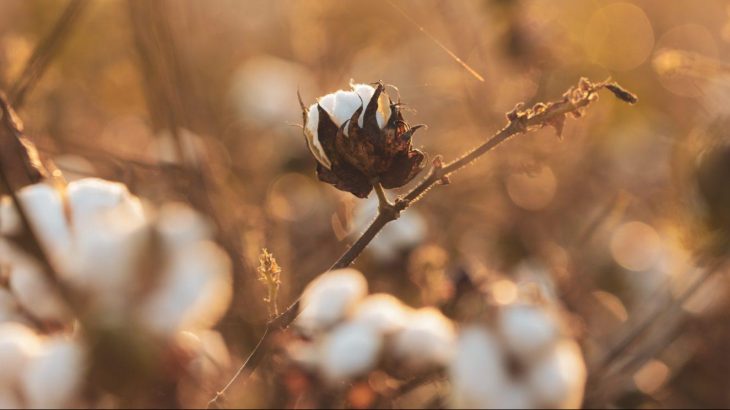
Organic cotton is a type of cotton that is grown using organic agricultural practices. These practices prioritise the use of natural inputs, and avoid the use of synthetic pesticides and fertilisers. Organic cotton has numerous benefits over conventionally grown cotton, making it a more sustainable and responsible choice for consumers.
100 million farmers grow cotton in 8 countries worldwide. Farmers and the consumers of organic cotton are contributing to, and encouraging, the use of sustainable practices that benefit the environment. Organic cotton is grown using sustainable agricultural practices that focus on the health and well-being of the soil and the environment. In contrast, conventional cotton growing methods are a major contributor to environmental degradation and pollution, as it requires large amounts of water and pesticides. By encouraging organic growing practices instead, we can help to reduce the negative impacts of conventional cotton production on the planet.
The benefits of organic cotton don’t just stay on the farm, they extend to the manufacturing process and even to the health of your skin.
How does organic cotton benefit farmers?
Farmers of organic cotton are free to choose the seeds and crops that they grow. In turn, through crop rotation, this means that the soil is nurtured and given a chance to regenerate in contrast to intensive farming practices, which strip the soil of their nutrients, resulting in a poorer yield and weaker crops. The freedom to choose what they grow means that farmers can grow food for themselves and their families, alongside crops that provide an income.
95% of the non-organic seed market is controlled by GM giant Monsanto. As a result, these farmers can be locked into costly contracts that leave them with little control over what they grow, and fields that are stripped of nutrients due to the lack of crop diversification.
Hazardous chemicals and pesticides are banned in organic cotton production, which is safer for the environment and the workers involved. In contrast, 16% of the world’s insecticides and 10% of the world’s pesticides are used in non-organic cotton farming. This results in approximately 77 million cotton workers suffering pesticide poisoning each year.
Organic cotton farming also uses dramatically less water and energy in crop production. The organic farming methods lock essential nitrogen in the soil and produce 94% less greenhouse gases. Conventional cotton growing, however, releases nitrogen into the atmosphere and contributes to global warming.
How does organic cotton benefit manufacturers?
Following organic farming practices doesn’t just mean respect for the environment, the highly regulated practice extends to the treatment of workers in the cotton manufacturing facilities, as well. All factories that process organic cotton are certified to strict social criteria, which means that there is no forced or child labour. Hazardous chemicals are also banned and the water waste is treated to protect workers and the water supplies. Additionally, any chemicals that are used must comply with strict toxicity and biodegradability rules.
Many factories that manufacture non-organic products for your favourite high street brands are not subject to mandatory inspections, so the working conditions and practices are left unchecked. These factories use toxic dyes and substances, many of which are banned in the EU. Local waterways have been found to be polluted with toxic and hormone-disrupting chemicals.
Can conventional cotton affect your health?
Tests on conventional cotton have revealed that there are an alarming quantity of toxic dye traces, which can be absorbed through the skin whilst wearing cotton garments. These toxins can cause rashes, allergies and even respiratory problems.
In GOTS or Soil Association certified factories, these harmful and carcinogenic chemicals are not allowed, making organic cotton garments suitable for all ages and for those that have sensitive skin. The lack of man-made chemicals in the production also results in organic cotton being stronger and more durable than conventionally grown cotton. This is why many of our clients opt for organic cotton T-shirts, for longer lasting garments.
As organic cotton growing practices have become more popular, the end price for the consumer has gradually decreased which means that you can choose organic cotton garments for your brand or employees for the same price as conventional cotton whilst supporting sustainable practices from field to shop floor.
We have numerous choices for organic cotton garments from T-shirts and hoodies to caps and bags. Not sure where to start with choosing organic products for your brand? Contact us and one of our advisors will be happy to help.



